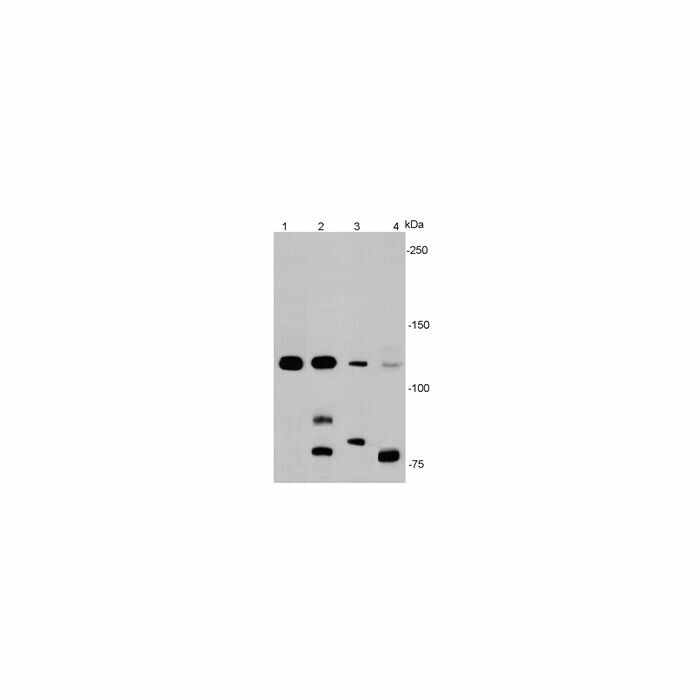CD324 (E-Cadherin) (clone ) , anti-human, mouse
€428.00
In stock
SKU
MB9007
Background:
E-cadherin (epithelial) is the most well-studied member of the cadherin family. It consists of 5 cadherin repeats (EC1 ~ EC5) in the extracellular domain, one transmembrane domain, and an intracellular domain that binds p120-catenin and beta-catenin. The intracellular domain contains a highly-phosphorylated region vital to beta-catenin binding and, therefore, to E-cadherin function. Loss of E-cadherin function or expression has been implicated in cancer progression and metastasis. E-cadherin downregulation decreases the strength of cellular adhesion within a tissue, resulting in an increase in cellular motility. This in turn may allow cancer cells to cross the basement membrane and invade surrounding tissues. E-cadherin is also used by pathologists to diagnose different kinds of breast cancer.
Alternative Name:
Cadherin-1, Cadherin1, Cadherin 1, CAM 120/80, Epithelial cadherin, E-cadherin, Uvomorulin, CD324, CDH1, CDHE, UVO
Application Dilution: WB: 1:500-1:1000, ICC: 1:200, IHC: 1:200, FC: 1:50-1:100
Specificity: This antibody detects endogenous levels of E-Cadherin and does not cross-react with related proteins.
Immunogen:
This antibody is produced by immunizing mice with recombinant protein to a region of E-cadherin.
MW: ~ 98, 130 kDa
Swis Prot.: P12830
Purification & Purity:
Protein A affinity purified
Format:
Mouse IgG1. 1*TBS (pH7.4), 1%BSA, 40%Glycerol. Preservative: 0.05% Sodium Azide.
Storage:
Store at 4°C short term. Aliquot and store at -20°C long term. Avoid freeze-thaw cycles.
For research use only, not for use in diagnostic procedure.
E-cadherin (epithelial) is the most well-studied member of the cadherin family. It consists of 5 cadherin repeats (EC1 ~ EC5) in the extracellular domain, one transmembrane domain, and an intracellular domain that binds p120-catenin and beta-catenin. The intracellular domain contains a highly-phosphorylated region vital to beta-catenin binding and, therefore, to E-cadherin function. Loss of E-cadherin function or expression has been implicated in cancer progression and metastasis. E-cadherin downregulation decreases the strength of cellular adhesion within a tissue, resulting in an increase in cellular motility. This in turn may allow cancer cells to cross the basement membrane and invade surrounding tissues. E-cadherin is also used by pathologists to diagnose different kinds of breast cancer.
Alternative Name:
Cadherin-1, Cadherin1, Cadherin 1, CAM 120/80, Epithelial cadherin, E-cadherin, Uvomorulin, CD324, CDH1, CDHE, UVO
Application Dilution: WB: 1:500-1:1000, ICC: 1:200, IHC: 1:200, FC: 1:50-1:100
Specificity: This antibody detects endogenous levels of E-Cadherin and does not cross-react with related proteins.
Immunogen:
This antibody is produced by immunizing mice with recombinant protein to a region of E-cadherin.
MW: ~ 98, 130 kDa
Swis Prot.: P12830
Purification & Purity:
Protein A affinity purified
Format:
Mouse IgG1. 1*TBS (pH7.4), 1%BSA, 40%Glycerol. Preservative: 0.05% Sodium Azide.
Storage:
Store at 4°C short term. Aliquot and store at -20°C long term. Avoid freeze-thaw cycles.
For research use only, not for use in diagnostic procedure.
| Is Featured? | No |
|---|
Write Your Own Review

